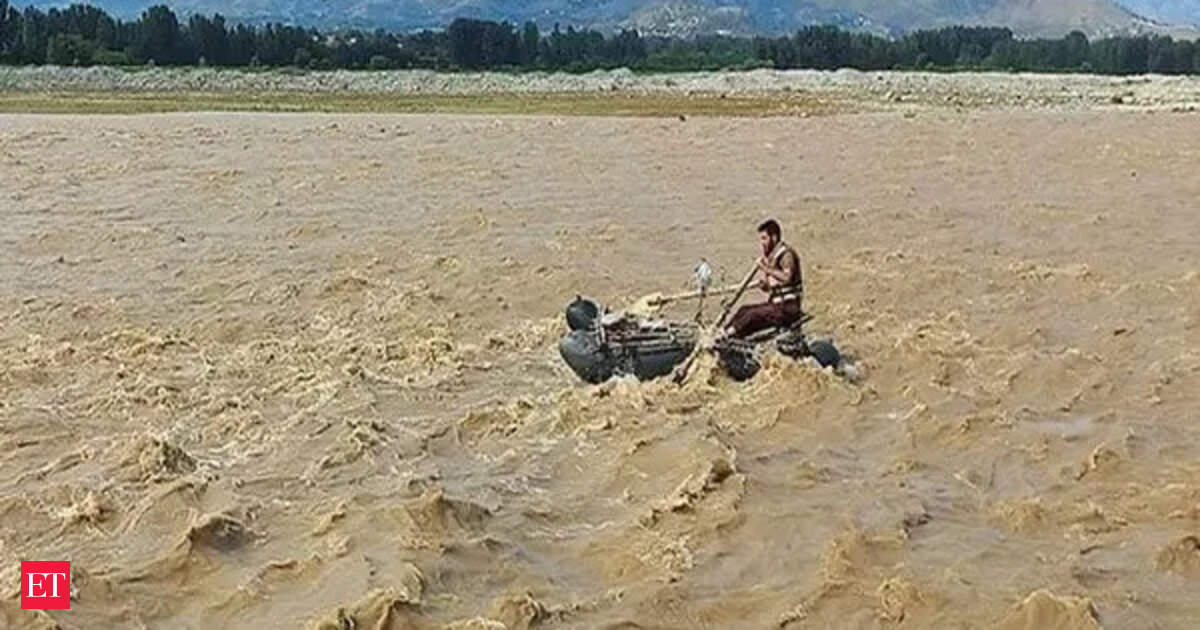Twelve bodies have been recovered so far, while the remaining five are still missing.
Pakistan’s Peshawar High Court has now taken strong note of what it called “institutional failure,” as questions mount over why rescue services failed to respond in time despite the family’s desperate cries for help, caught on video.
The incident occurred on July 5 near the banks of the river, where the family was seen stranded on a shrinking patch of land for nearly an hour before being engulfed by the rising waters. Videos circulated widely on social media show the group pleading for help—yet no rescue personnel were in sight.
PHC slams authorities for negligence
At a hearing on Thursday, the chairman of the inspection committee probing the disaster informed the Peshawar High Court that multiple government departments had shown “departmental negligence.”
The court, led by Chief Justice Mohammad Ibrahim Khan, ordered officials to swiftly identify those responsible and called for an overhaul of emergency protocols, Geo News reported. When questioned, Hazara Division Commissioner Fayaz Ali Shah told the court that certain preventive measures had been in place—including the enforcement of Section 144 in tourist areas, anti-encroachment drives, and additional staffing at Nathia Gali hospital. However, the chief justice pressed further, asking whether new technologies like drones could be employed in emergencies. Shah confirmed that drones equipped to deliver life jackets had been acquired and that drills would be conducted to test response capabilities.
Rescue chief admits delay, officials suspended
The court also summoned Shah Fahad, Director General of Rescue 1122 in Khyber Pakhtunkhwa, who acknowledged that he was in Peshawar when the incident occurred.
Fahad said the first emergency call was received at 9:45 a.m., but initial dispatches did not categorize the situation as a flood emergency. According to Geo News, boats and divers were deployed only after the severity of the incident became clear, and three survivors were rescued near Mingora Bypass Road.
Fahad further informed the court that several rescue officials have been suspended pending an internal investigation. Both the Hazara and Malakand commissioners have been asked to submit comprehensive reports detailing the chain of events and departmental coordination.
Outrage over lack of preparedness
The tragedy has reignited debate over the fragile state of Pakistan’s emergency preparedness—especially in the country’s popular northern tourist regions. Swat, a favoured summer destination, has long lacked modern rescue infrastructure.
Now, the absence of timely aid for the Sialkot family has laid bare the consequences of administrative apathy.
“Tourists must be guaranteed a safe environment,” the chief justice told the court. As grieving families wait for answers and the search for the missing continues, Pakistan’s institutions are under increasing pressure to ensure such negligence never happens again.

